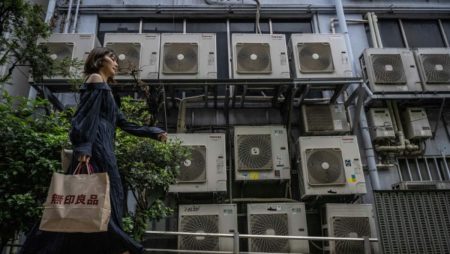The trend of non-Chinese students enrolling in Chinese primary schools across Malaysia has been on the rise, with about 20% of students in these schools being non-Chinese in 2024, compared to around 12% in 2010. This shift has sparked debate among various groups, with some arguing that these schools hinder national unity and should be shut down. However, a recent court ruling has reaffirmed the constitutionality of vernacular schools in the country, allowing them to continue operating.
One example of this trend is the Si Chin Chinese School in Bahau, Negeri Sembilan, where all 20 primary one students enrolled were Malays. Despite this growing diversity in these schools, some individuals within these institutions have discouraged non-Chinese families from enrolling their children, citing concerns about their lack of proficiency in Mandarin. This resistance did not deter Mdm Siti and her husband from enrolling their children, as they believed that proficiency in Mandarin would come with time.
The school system in Malaysia is divided into national and vernacular schools, offering Malay, Mandarin, and Tamil as the mediums of instruction, respectively. In 2020, there were a total of 7,780 primary schools in Malaysia, with over 5,800 being national schools and around 1,800 being vernacular schools. Following primary education, students have the option to attend national secondary schools or independent schools, with 82 Chinese government secondary schools and 63 independent Chinese high schools in Malaysia as of 2021.
While there are no Tamil secondary schools in Malaysia, Chinese government secondary schools (SMJKs) have transitioned to using Malay as the medium of instruction while still providing Mandarin lessons. Independent Chinese high schools in Malaysia, however, use the Unified Examination Certificate (UEC) syllabus, which is not recognized by the Malaysian government. Despite these differences, the education system in Malaysia aims to provide students with a strong educational foundation while also nurturing linguistic and cultural diversity among the population.
The growing number of non-Chinese students enrolling in Chinese schools in Malaysia reflects a changing demographic landscape and an increasing acceptance of linguistic and cultural diversity in the country. The debate surrounding the role of vernacular schools in national unity continues to be a topic of discussion, with supporters highlighting the importance of preserving language and heritage, while critics argue that these schools promote segregation. As Malaysia moves forward, balancing the preservation of cultural identities with fostering national unity remains a key challenge for its education system.















